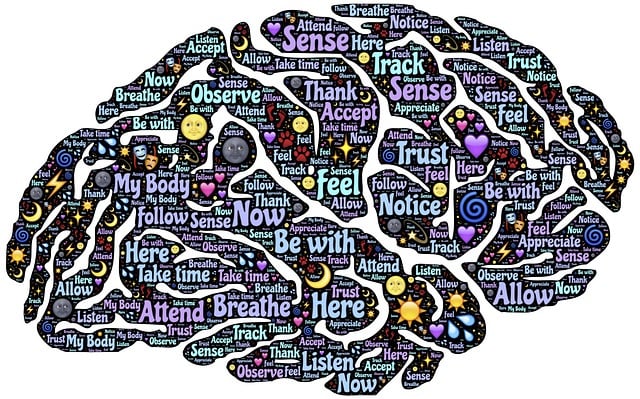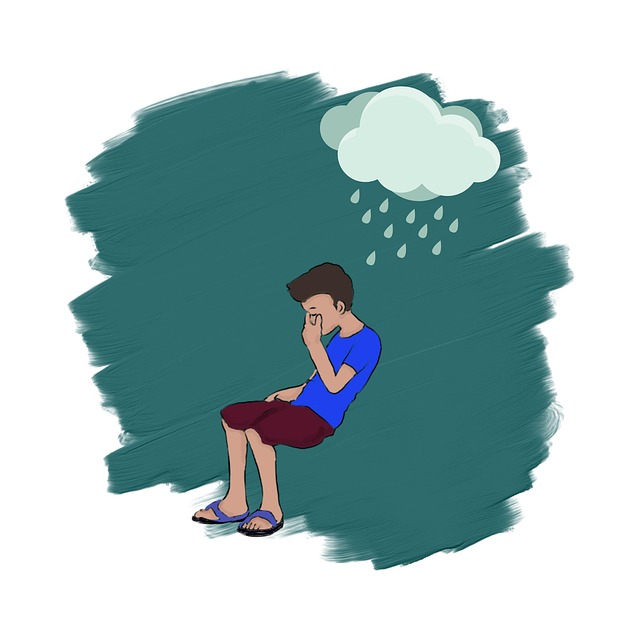Lone Tree Blended Families Therapy offers powerful mental wellness group facilitation, creating safe spaces for families to connect and improve coping strategies. Through open discussions, peer support, and Mind Over Matter principles, groups develop resilience, emotional intelligence, and positive thinking. Interactive techniques, burnout prevention, and trauma support ensure comprehensive care, with success measured through feedback and adaptability. Lone Tree Blended Families Therapy exemplifies these methods for optimal mental health outcomes tailored to individual family needs.
Mental wellness group facilitation plays a pivotal role in supporting Lone Tree blended families. This article explores effective techniques for facilitating supportive environments that foster healing and growth. We delve into creating safe spaces, engaging interactive activities, and measuring success in Lone Tree blended family therapy groups. By understanding the unique dynamics of these families, facilitators can adapt strategies to provide optimal mental health support tailored to their needs.
- Understanding the Role of Group Facilitation in Mental Wellness
- Creating a Safe and Inclusive Environment for Lone Tree Blended Families
- Engaging and Interactive Techniques for Effective Group Therapy
- Measuring Success and Adapting Strategies for Optimal Mental Health Support
Understanding the Role of Group Facilitation in Mental Wellness

Mental wellness group facilitation plays a pivotal role in fostering supportive environments where individuals can navigate their emotional journeys together. In the context of Lone Tree Blended Families Therapy, this approach is particularly beneficial for families seeking to enhance coping mechanisms and promote overall mental well-being. Through group dynamics, members gain access to a network of peers facing similar challenges, creating a sense of belonging and understanding. This shared space allows for open discussions, peer support, and the exchange of valuable coping skills development strategies, which are essential for managing anxiety relief and stress.
The technique employs Mind Over Matter principles, encouraging participants to challenge negative thoughts and beliefs. Group facilitation techniques foster an atmosphere where individuals can learn from one another’s experiences, strengthening their resilience and emotional intelligence. By combining these elements, Lone Tree Blended Families Therapy offers a comprehensive approach that not only addresses individual needs but also empowers group members to support each other in their mental wellness journeys.
Creating a Safe and Inclusive Environment for Lone Tree Blended Families

In facilitating mental wellness groups for Lone Tree blended families, creating a safe and inclusive environment is paramount. This involves fostering an atmosphere where every family member feels valued and respected, regardless of their background or experiences. Group leaders should encourage open communication, ensuring that all voices are heard and no one feels judged. Incorporating Mind Over Matter principles can help participants develop resilience and cope with the unique challenges that come with blended families, such as adjustment issues and step-parent dynamics.
A key aspect of this process is burnout prevention. Given the demanding nature of family integration, it’s crucial to provide strategies for stress management and self-care within the group setting. Trauma support services should also be accessible if needed, addressing any underlying emotional wounds that may surface during discussions. This holistic approach ensures that Lone Tree blended families receive comprehensive care tailored to their unique situations.
Engaging and Interactive Techniques for Effective Group Therapy

Engaging and interactive techniques are pivotal in facilitating effective group therapy sessions, especially when catering to diverse populations like Lone Tree Blended Families Therapy. These approaches foster a dynamic environment that encourages active participation, ensuring every member feels heard and valued. Techniques such as role-playing scenarios and experiential exercises allow participants to explore complex emotions and interpersonal dynamics in a safe space. By immersing themselves in these activities, individuals can gain new perspectives and develop coping strategies tailored to their unique experiences.
Interactive methods also promote positive thinking and inner strength development. Through group discussions, members can share personal narratives, offer mutual support, and learn from one another’s resilience. This collective approach not only enhances the therapeutic process but also empowers participants to navigate challenges with increased confidence. Effective risk management planning for mental health professionals is integral to these techniques, ensuring that sessions remain inclusive, productive, and aligned with the group’s evolving needs.
Measuring Success and Adapting Strategies for Optimal Mental Health Support

Measuring success is a critical component of effective group facilitation, especially when supporting mental health and well-being. As a facilitator, it’s essential to establish clear goals and outcomes tailored to the unique needs of each group and individual. This could involve assessing pre-and post-session emotional regulation skills, conflict resolution techniques employed, and changes in mental health awareness and coping strategies. Quantitative and qualitative feedback methods, such as surveys, open discussions, and observational notes, can provide valuable insights into the group’s progress.
Adaptability is key to optimal mental health support. Based on the measured outcomes and feedback, facilitators should be prepared to adjust their strategies and approaches. This might involve incorporating new activities or techniques to address emerging challenges, redefining goals, or modifying the pace of the program to ensure each member receives the necessary support. At Lone Tree Blended Families Therapy, for instance, facilitators continually assess and adapt their methods to foster a safe, supportive, and inclusive environment that enhances emotional well-being and encourages positive mental health outcomes.
Mental wellness group facilitation plays a pivotal role in supporting individuals, especially within unique communities like Lone Tree blended families. By fostering a safe and inclusive environment, facilitators can employ engaging techniques to enhance therapy sessions. This article has explored strategies to create effective group dynamics, adapt to diverse needs, and measure success. Understanding these techniques empowers professionals to provide tailored support, ultimately enhancing the mental health of Lone Tree blended family members.











